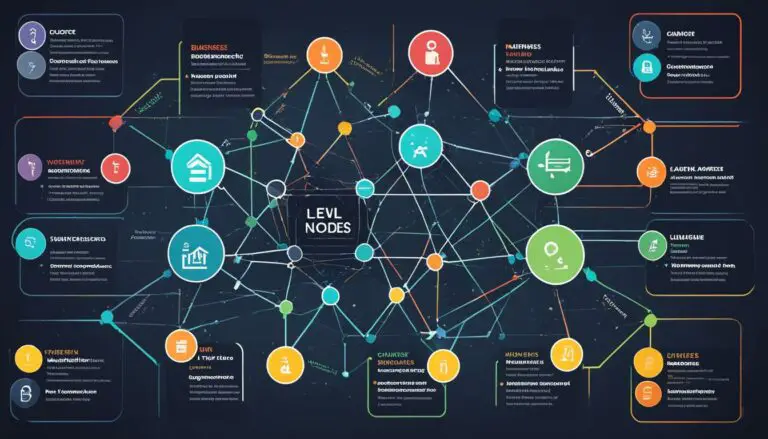AP vs A Level vs IB: Which is the Best Option for You?
When it comes to high school education, students have a variety of options to choose from.
Advanced Placement (AP), A Levels, and International Baccalaureate (IB) are popular programs. Each program has a unique structure, curriculum, and benefits catering to different student needs.
This article delves into the nuances of three distinct programs, aiming to guide students in choosing the most suitable one. The Advanced Placement (AP) program, provided by the College Board in the United States and Canada, allows high school students to undertake college-level courses. By successfully passing AP exams, they can earn college credit.
On the other hand, A Levels is a British-based program focusing on a few subjects’ in-depth study. Students typically take exams at the end of each course and receive a qualification based on their performance.
Lastly, the International Baccalaureate (IB) is a program that offers a broad and balanced curriculum to students around the world. It includes six subject groups, a core program, and exams at the end of each course.
While all three programs offer rigorous academic challenges, their approach and structure differ. Students must consider their strengths, interests, and future goals when deciding which program to pursue.
Understanding AP, A Level, and IB
When choosing between Advanced Placement (AP), A Levels, and International Baccalaureate (IB), it is essential to understand their critical differences. Each program has its unique structure, curriculum, and assessment methods.
Advanced Placement (AP)
AP is a program developed by the College Board in the United States and is widely recognized worldwide. It offers college-level courses and exams to high school students, allowing them to earn college credits and advanced placement in college courses.
AP courses cover a variety of subjects, such as math, science, social studies, and languages. Students receive scores between 1 and 5, where 5 is the best.
Earning a score of 3 or above usually indicates a passing grade and can potentially grant college credit. But remember, each college sets its own credit guidelines, so always check with the specific institution you’re considering.
A Levels
A Levels is a qualification offered by Cambridge International Examinations (CIE) and is recognized worldwide. Students in the UK typically take a Levels, but they are also provided in other countries.
🌟 Hey Students! 🚀 Ready for the ultimate experience? Join us on Studentsinside.com's Facebook, YouTube, WhatsApp, and LinkedIn. Click now for tips, fun, and success vibes! 🌈✨ #StudentLife #JoinUs
A Levels are subject-based qualifications, and students can choose to study up to four subjects.
A Levels are scored on a scale of A* to E, with A* being the highest possible score. A Levels are more challenging than other qualifications and highly respected by universities worldwide.
International Baccalaureate (IB)
The IB program provides a comprehensive and balanced curriculum for students aged 16 to 19, fostering intellectual, personal, emotional, and social development.
This program is available in three versions: the Primary Years Program, the Middle Years Program (MYP), and the Diploma Program (DP).
The IB Diploma Program is the most globally recognized, offered in over 140 countries. This program encompasses six subject groups: language and literature, language acquisition, sciences, individuals and societies, mathematics, and the arts.
Besides studying these subjects, students also complete a research project, compose a 4,000-word essay, and participate in activities that foster creativity, activity, and service (CAS).
Every IB course receives a grade between 1 and 7, with 7 being the top score. To earn the IB Diploma, students need to gather a minimum of 24 points.
Curriculum Comparison
When comparing the AP, A Level, and IB curriculums, it’s important to note that each one is structured differently and has unique content.
AP Curriculum
The AP curriculum is an American-based program that offers college-level courses to high school students. The College Board designs the content of the courses, and the program is internationally recognized.
AP courses cover many subjects, including math, science, English, history, and foreign languages. Each course has its specific content and curriculum, and students can take as many or as few courses as they like.
After completing each AP course, students have the opportunity to take an AP exam. These exams receive scores ranging from 1 to 5.
Many universities offer college credit or advanced placement for high scores. Due to its challenging content and high standards, the AP program is a top choice for academically ambitious students.
A Level Curriculum
The A Level curriculum is a British-based program offered by two main exam boards: Pearson Edexcel and Cambridge. The exam boards design the courses’ content and cover various subjects, including math, science, English, history, and foreign languages.
A Level courses are typically more specialized than AP courses, with students choosing to focus on specific subjects they are interested in.
Students can take an A Level exam after each course, with scores ranging from A* to E. A good score can earn them credit or advanced placement in colleges and universities. The A Level program emphasizes deep content knowledge, critical thinking, and analysis.
IB Curriculum
The International Baccalaureate (IB) curriculum provides students a comprehensive and well-rounded education.
Designed by the International Baccalaureate Organization, this program encompasses diverse subjects such as math, science, English, history, and foreign languages.
With an interdisciplinary approach, IB courses emphasize critical thinking and problem-solving abilities.
At the end of the program, students can take the IB Diploma Program, which is scored on a scale of 1-7. The diploma program requires students to take six courses, including one from each of the six subject groups, complete an extended essay, and participate in a creativity, activity, and service (CAS) program.
Colleges and universities often provide credit or advanced placement for students who finish the IB program. This program emphasizes global awareness and aims to develop well-rounded individuals.
Assessments and Exams
AP Exams
AP exams are generally taken in May of each year. They are three hours long and consist of multiple-choice and free-response questions. A computer scores the multiple-choice questions, while the free-response questions are scored by trained AP teachers and college professors.
Exams are scored from 1 to 5, where 5 is the top mark. While a score of 3 is often seen as a passing grade, some colleges might ask for a 4 or 5 to give credit.
A Level Exams
A Level exams are typically taken in May or June of each year, with some exams available in January. They are generally two to three hours long and contain essays and multiple-choice questions. The exams are graded on a scale of A*-E, with A* being the highest score. The grading scale varies depending on the exam board.
IB Assessments
IB assessments are split into two categories: internal and external. Students complete internal assessments during their course, and teachers grade them. On the other hand, external assessments occur at the course’s conclusion and are marked by IB examiners.
The evaluation criteria encompass written and oral exams as well as coursework. Students can achieve scores between 1 and 7, with 7 being the highest. To earn an IB diploma, a student needs at least 24 points.
Subjects Covered
When it comes to the subjects covered in AP, A Level, and IB curriculums, there are some similarities and differences.
AP Subjects
The AP curriculum offers various subjects such as sciences, mathematics, English literature, and art history. Some examples of these courses are AP Physics 1, AP Physics 2, AP Physics C: Mechanics, AP Calculus, and AP English Literature.
AP courses delve deeper into specific topics, providing students with a thorough understanding. They are typically more demanding than regular high school classes, preparing students effectively for college-level studies.
A Level Subjects
A Level courses are also available in various subject areas, including sciences, mathematics, the arts, and language and literature. Some specific A-level courses include Biology, Chemistry, and English Literature.
A Levels typically delve deeper into a specific subject area, whereas AP courses might cover a broader range of topics. For instance, A-level biology students will study the subject intensively instead of exploring multiple science subjects in one course.
IB Subjects
The IB curriculum is designed to be more broad-based than either AP or A Level courses. The IB curriculum covers six subjects: language acquisition, individuals and societies, mathematics, the arts, sciences, and language and literature.
The IB curriculum has a distinctive course named Theory of Knowledge. Its purpose is to bolster students’ ability to think critically and see the links between diverse subjects.
Skills Developed
One of the key benefits of studying AP, A level, or IB is the development of critical thinking skills. All three curriculums are designed to challenge students and encourage them to think beyond the surface level of a topic. This thinking is essential for success in higher education and the workforce.
In addition to critical thinking, all three curriculums also place a strong emphasis on writing skills. Students are expected to be able to communicate their ideas effectively through written assignments and exams. This type of discipline is vital for success in any field, as clear and concise communication is essential in most professions.
While all three curriculums share similarities in the skills they develop, some differences exist. For example, the IB curriculum strongly emphasizes interdisciplinary learning, which can help students develop a more holistic understanding of complex topics.
On the other hand, the A level curriculum is known for its depth of study in specific subjects, which can help students develop a more specialized skill set.
Ultimately, the skills developed through AP, A level, or IB will depend on the individual student and their interests and strengths.
However, all three curriculums offer a rigorous and challenging education that can help students develop the skills they need to succeed in their future endeavors.
University Recognition and Credits
Regarding university recognition and credits, all three programs – AP, A-Level, and IB – are recognized by universities worldwide.
However, A-Levels are considered the most widely recognized internationally, with courses being followed in over 10,000 schools and recognized in over 160 countries. AP is also highly recognized, with over 2.8 million students taking AP exams in 2019 alone.
In the United States, AP courses are widely accepted by colleges and universities, with many institutions offering college credit for qualifying scores on AP exams.
However, accepting A-Level and IB courses varies from institution to institution. Ivy League universities favor IB courses, while other universities may give more weight to A-Level courses.
It’s important to note that while AP, A-Level, and IB courses may earn college credit, the amount of credit awarded varies from institution to institution.
For example, one university may award three credits for a qualifying AP score, while another may only award two. Some universities may require students to take a placement exam and earn a qualifying score on an AP, A-Level, or IB exam to receive credit.
Advantages and Disadvantages
AP Pros and Cons
The Advanced Placement (AP) program is a rigorous curriculum offering college-level high school courses. Here are some advantages and disadvantages of the AP program:
Advantages
- Competitive Advantage: AP courses give students a competitive boost during college applications.
- Rigorous Curriculum: AP courses enhance students’ critical thinking and problem-solving abilities.
- College Credit: Achieving high scores on AP exams allows students to secure college credits, leading to savings in both time and funds.
Disadvantages
- Expensive: AP exams cost money, and the fees can add up quickly if a student takes multiple exams.
- Limited Flexibility: AP courses are structured and may not allow students to explore other areas of interest.
- Extended Essay: Some AP courses require students to complete an extended essay, which can be time-consuming and stressful.
A Level Pros and Cons
A Levels are a popular curriculum in the UK and other countries. Here are some advantages and disadvantages of the A Level program:
Advantages
- Flexible: A Level courses allow students to choose the subjects they want to study and tailor their curriculum to their interests.
- Competitive Advantage: A Levels are highly respected by universities and can give students a competitive edge when applying to colleges and universities.
- Rigorous Curriculum: A Level courses offer a challenging curriculum that aids students in enhancing their critical thinking and problem-solving abilities.
Disadvantages
- Expensive: A Level exams can be expensive, and the fees can add up quickly if a student takes multiple exams.
- Limited International Recognition: A Levels are primarily recognized in the UK and some Commonwealth countries, which may limit a student’s options for studying abroad.
- Extended Essay: Some A Level courses require students to complete an extended essay, which can be time-consuming and stressful.
IB Pros and Cons
The International Baccalaureate (IB) program is a globally recognized curriculum that offers a comprehensive education to students. Here are some advantages and disadvantages of the IB program:
Advantages
- Competitive Advantage: The IB program is highly respected by universities and can give students a competitive edge when applying to colleges and universities.
- Comprehensive Education: The IB program offers a well-rounded education that includes academic, social, and personal development.
- Extended Essay: The IB program requires students to complete an extended essay, which can help them develop research and writing skills.
Disadvantages
- Length of Study: The IB program is a two-year program that requires consistent work and solid performance over a long period.
- Rigorous Curriculum: The IB program is challenging and may not be suitable for all students.
- Expensive: IB exams can be expensive, and the fees can add up quickly if a student takes multiple exams.
Conclusion
In conclusion, all three curricula, AP, A-Level, and IB, are academically challenging and can help students prepare for university. However, each has its unique advantages and disadvantages.
Scores on AP exams vary between 1 and 5, with scores of 3 or above frequently leading to college credit in US and Canadian institutions. Conversely, over 10,000 schools provide A-Level courses, acknowledged in upwards of 160 countries.
On the other hand, the IB program covers a broader range of subjects and requires students to complete a research project and community service.
The table below summarizes the key differences between AP, A-Level, and IB:
| Curriculum | Duration | Number of Subjects | Assessment | Recognition |
|---|---|---|---|---|
| AP | 1-2 years | Up to 38 subjects | Exam-based | Widely recognized in the US and Canada |
| A-Level | 2 years | Up to 5 subjects | Exam-based | Widely recognized internationally |
| IB | 2 years | 6 subjects + TOK + EE + CAS | Exam-based + Internal Assessment | Widely recognized internationally |
Ultimately, the curriculum choice depends on the student’s academic goals and preferences.
Students who want to focus on and specialize in a few subjects may prefer A-Level, while those who want to explore a broader range of subjects and develop critical thinking skills may prefer IB.
AP is a good option for students who wish to earn college credit and demonstrate their academic ability in specific subjects.
It is important to note that admission requirements vary by university and program, and students should research the specific requirements before deciding on a curriculum.








